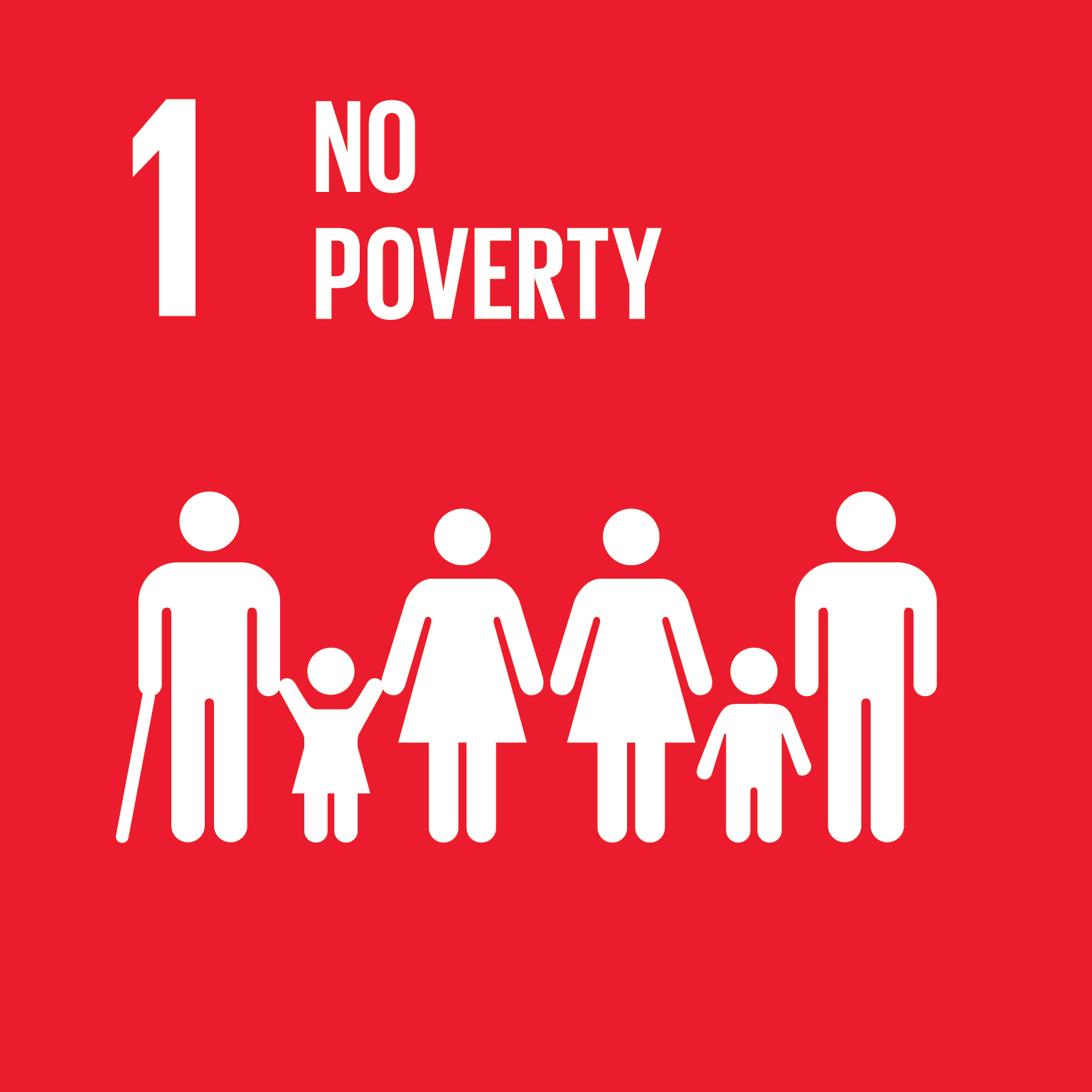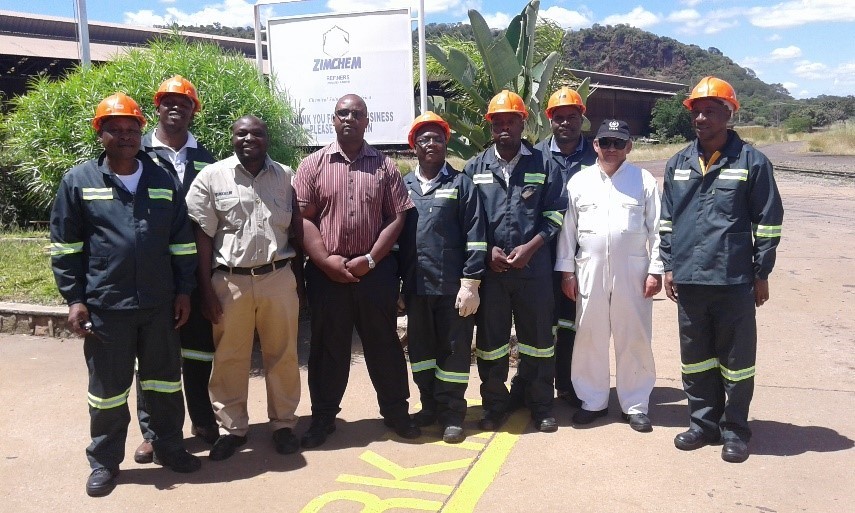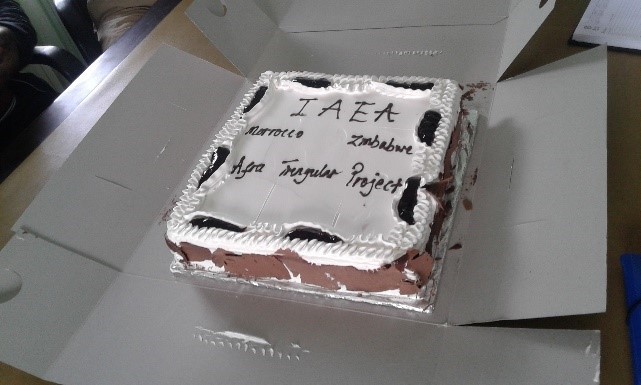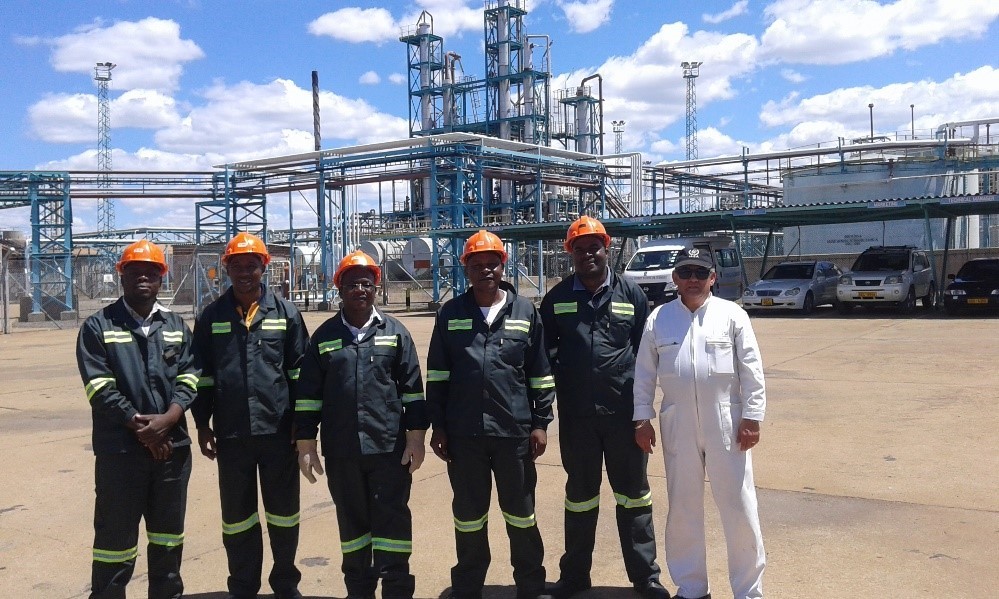Enhancing Self-reliance and Sustainability of the Africa Region using Nuclear Science and Technology for Socio-economic Development
IAEA technical cooperation supports the expansion of the regional network of institutes applying nuclear science and technology to enhance Africa’s self-reliance and sustainability and achieve key national, regional and the Sustainable Development Goals
Challenges
Many African countries suffer from a shortage of qualified people in fields related to the peaceful use of nuclear science and technology. This limits their ability to use this technology for the achievement of national and regional priorities and the Sustainable Development Goals (SDGs).
The African Regional Cooperative Agreement for Research, Development and Training related to Nuclear Science and Technology (AFRA), supported by the IAEA, has facilitated the establishment of regional designated centres ?(RDCs) in only 11 countries in the region. There is a need to expand the number of institutions and countries to play a greater role in South-South technical cooperation among developing countries.
Towards a Solution
The IAEA promotes South-South and Triangular Cooperation in Africa through several regional technical cooperation projects. These projects increase the number of African institutions that have the technical and human resource capacities to apply and transfer nuclear science and technology for peaceful purposes and contribute to Africa’s achievement of national and regional priorities and the SDGs. First, a targeted regional project builds partnerships for collaboration in a specific area of nuclear science and technology for the achievement of specific development objectives. These objectives are then pursued through sub-projects in the framework of formal agreements between the parties involved. These formal agreements are signed under the African Regional Cooperative Agreement for Research, Development and Training related to Nuclear Science and Technology (AFRA), one of the regional/cooperative agreements the IAEA supports.
Each AFRA project usually involves three key parties: an institute in an African country with more advanced capabilities in the application of nuclear technology in a specific area – usually referred to as the “donor institute”; an institute with less advanced capacities in the application of nuclear technology in a specific area – usually referred to as the “recipient institute”, and the IAEA as the entity facilitating the cooperation and providing the additional support that is needed.
At the outset, representatives from government authorities, selected institutes applying nuclear science and technology in the participating countries, and the IAEA assess the needs of less advanced institutes against the available capacities in more advanced institutes. The collaborating institutes sign formal agreements with AFRA, clearly spelling out the scope of cooperation, the roles and responsibilities of the signatories, and the concrete outputs to be achieved under these partnerships. The IAEA facilitates consultations as well as the identification and the conclusion of these partnerships.
For example, In 2017, the Algiers Nuclear Research Centre hosted the Postgraduate Educational Course (PGEC) in Radiation Protection and the Safety of Radiation Sources for French-speaking countries while the Graduate School of Nuclear and Allied Sciences in Accra, Ghana hosted the same training course for English-speaking candidates. In addition, the effective use of radiotracers in industry was promoted through triangular partnerships between Morocco, as a more advanced country in the use of this technology, with Egypt, Kenya, Sudan and Zimbabwe.
Partners involved define the specific deliverables under these agreements, which are then developed as sub-projects in the framework of the regional project. The cooperation under the sub-projects has focused on the exchange of expertise and training with some limited procurement of equipment. Examples include:
- Training and certification in a broad range of nuclear applications for use in industry (e.g. testing of structures, modification of materials)
- Business plans for industrial radiotracer facilities
- Transfer of capacities in the calibration of radiation monitoring equipment, and
- Lectures for post-graduate teaching in nuclear science and technology.
The IAEA has facilitated this cooperation, ensured the technical integrity of the proposed sub-projects, and provided financing.
This project approach has broadened institutional capacity to use nuclear science and technology throughout the continent by increasing the number of cooperating institutions in line with international standards. There are 32 RDCs in a broad range of areas that include cancer control, food safety, food security, nutrition, water resources management, environmental monitoring, energy production and industry. More institutes are equipped with the necessary capacities to address national priorities, implement the region’s vision outlined in AFRA’s Regional Strategic Cooperative Framework 2019-2023, and contribute to the achievement of the SDGs. It is aimed to expand the approach to more institutions in the years to come through similar projects. AFRA RDCs, following nomination by the Member States, are rigorously assessed against technical criteria and standards to confirm that they are in a position to provide services to the region.
Contact Information
Shaukat Abdulrazak, Director, Division for Africa, Department of Technical Cooperation, International Atomic Energy Agency
Countries involved
Algeria, Burkina Faso, Côte D’Ivoire, Democratic Republic of the Congo, Egypt, Ghana, Kenya, Morocco, South Africa, Sudan, Zimbabwe
Nominated By
International Atomic Energy Agency (IAEA)
Supported By
Governments of participating African Member States
Implementing Entities
IAEA
Project Status
Ongoing
Project Period
2016
Primary SDG
17 - Partnerships for the Goals
Secondary SDGs
02 - Zero Hunger, 03 - Good Health and Well-being, 06 - Clean Water and Sanitation, 07 - Affordable and Clean Energy, 08 - Decent Work and Economic Growth, 09 - Industry, Innovation and Infrastructure, 11 - Sustainable Cities and Communities, 12 - Responsible Consumption and Production, 13 - Climate Action, 14 - Life Below Water, 15 - Life on Land
Similar Solutions


















